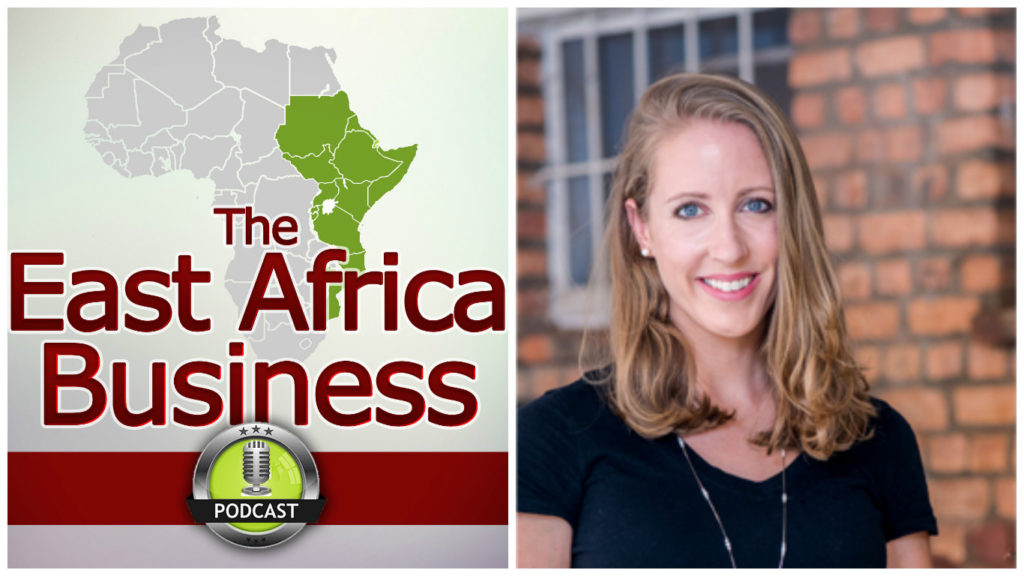Overview
Fresh produce delivery has traditionally been an informal industry in Rwanda. Reliably ordering food isn’t really a thing and so after finishing a contract at the Nike Foundation, Lauren Russell decided to set up GetIt as a way for businesses and consumers to have an easy way of ordering food.
We go into how companies like GetIt are compensating for legacy infrastructure deficiencies, considerations in linking international brands to frontier markets, and how it’s now much easier for Rwandans to buy ingredients for a lasagne.
Sign up below to hear whenever there are new stories and episodes released on the podcast
Here are some of the key quotes:
“GetIt connects global brands with frontier markets”
It was set up with a view to solving the scaled retail market in Rwanda after Lauren saw a huge opportunity in helping to develop the region. Stores wouldn’t reliably have produce month in month out and so Lauren decided to take the plunge and start her company.
“Rwanda has 147,000 cars for 12 million people”
The country (especially in rural areas) isn’t set up for people to jump in their car and drive to the store to pick up their groceries. GetIt is designed to deliver produce despite this.
“You can’t just throw up a website”
There’s low internet usage (about 80% of the population don’t have access) and even then, people don’t have addresses. So you can’t simply get set up and start delivering to people’s houses when there’s nowhere fixed to deliver to.
“There was no B2B restaurant food delivery company”
Restaurants were ordering food on an ad hoc basis. A guy would go to the market each day to buy produce until some started using GetIt and getting a more reliable and consistent means of getting food delivered to a higher standard.
“Chefs now advise farmers on what they should grow”
A feedback loop now exists between the customers and the producers. Chefs and other consumers have been able to ask producers to modify their production and start introducing new lines which before they hadn’t considered.
“Challenges exist in how small producers operate”
Some producers struggle with the fundamentals of running a small operation in terms of business registration and other quality standards. GetIt look at training these producers and working with government to ensure production is kept to a high and hygenic level.
This is particularly important in terms of getting products ready for export.
“There are only a dozen cold storage facilities in the country”
GetIt are building a facility to store their produce and keep it fresh. It’s built to be powered via solar energy, which essentially creates a huge ice cube to keep things cold in their walk in fridge.
Many of their employees have never felt the experience of being in a cold environment before they step into the walk in the cold room.
“Last year I was delivering from my car, today we do 10,000 tonnes a week”
Since developing their operational system, GetIt have grown to 40 staff and now have a huge truck of deliveries each week. The challenges they are facing involve getting the culture right within the company as it scales across the country.
“No one used mobile money when we started”
GetIt adapted to accept cash because people pre-paying with mobile money was becoming a barrier to customers using the service. Cash is problematic, but at least for now, it is something they are accepting.
GetIt also needed to expand the product range so that customers could get all of their shopping from one place.
“We operate on Facebook because internet.org means it free to use”
The way of ordering is done predominantly through social media channels because people don’t eat into their data packages when using websites such as Facebook. More info here.
“There’s never been a need for addresses before”
Rwanda is still pretty community based. You would tell someone your “cell” (collection of 100 households) within an area of the city and then (because everyone knows everyone) you could get directed to the right place just by asking someone.
Before getting things delivered, someone would just go and get you something.
“Franchise businesses can’t get reliable supply to set up in Africa”
Subway, Pizza Hut and hotels need to have high standard supply chains to operate in a developing market. Currently they have a problem of not being able to say for certain that their produce meets international levels.
GetIt builds the supply chain to get international brands to operate in a frontier market.
Typically former English colonies (Kenya, Nigeria, Uganda) have more developed local infrastructure and so they are typically more advanced.
“We see opportunity in countries with less infrastructure”
GetIt believes there is greater opportunity to add value where the infrastructure is poorer than in more advanced places like Nairobi.
Social Media Follows
GetItRwanda: Twitter, Facebook
Lauren Russell: https://twitter.com/laurendrussell
